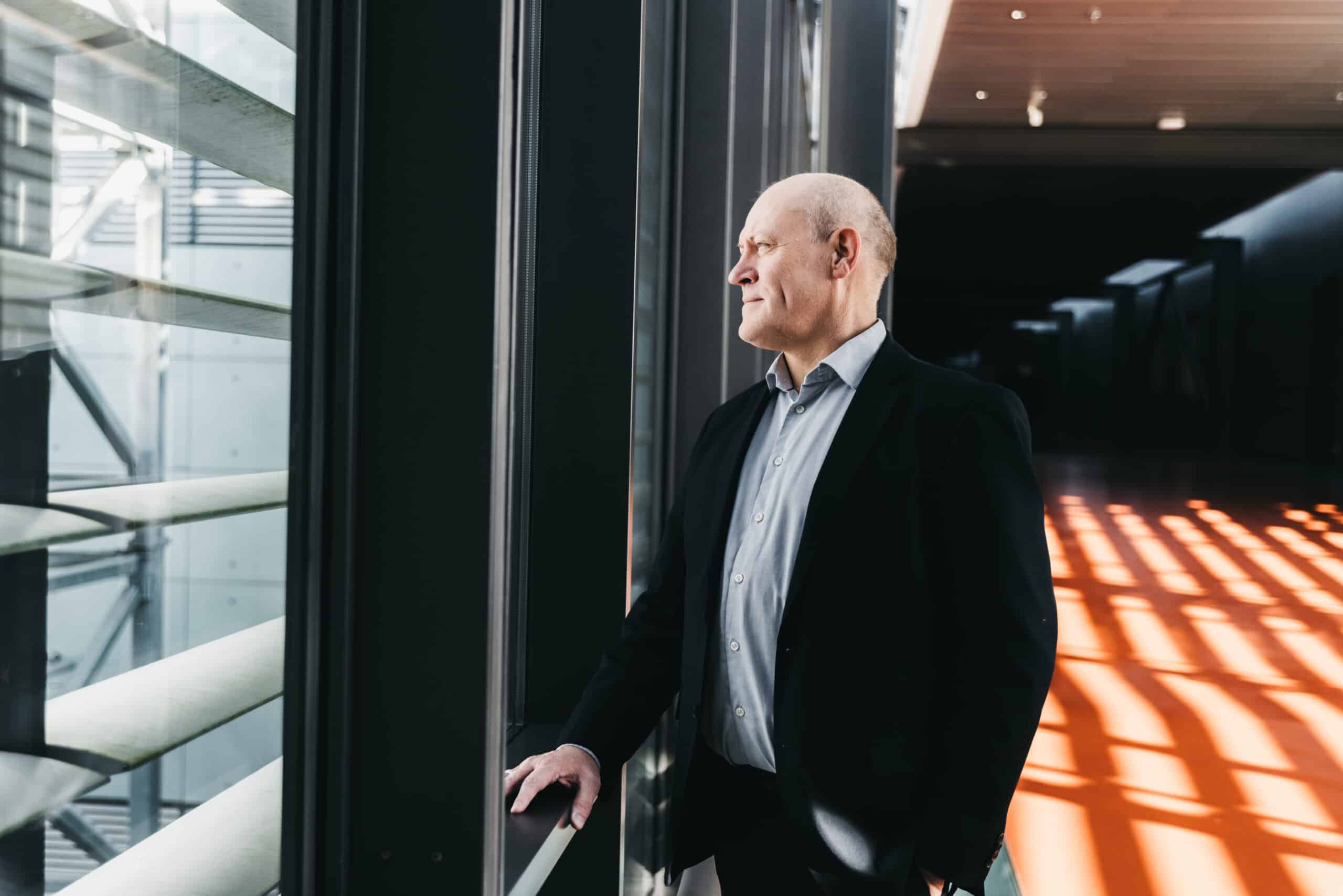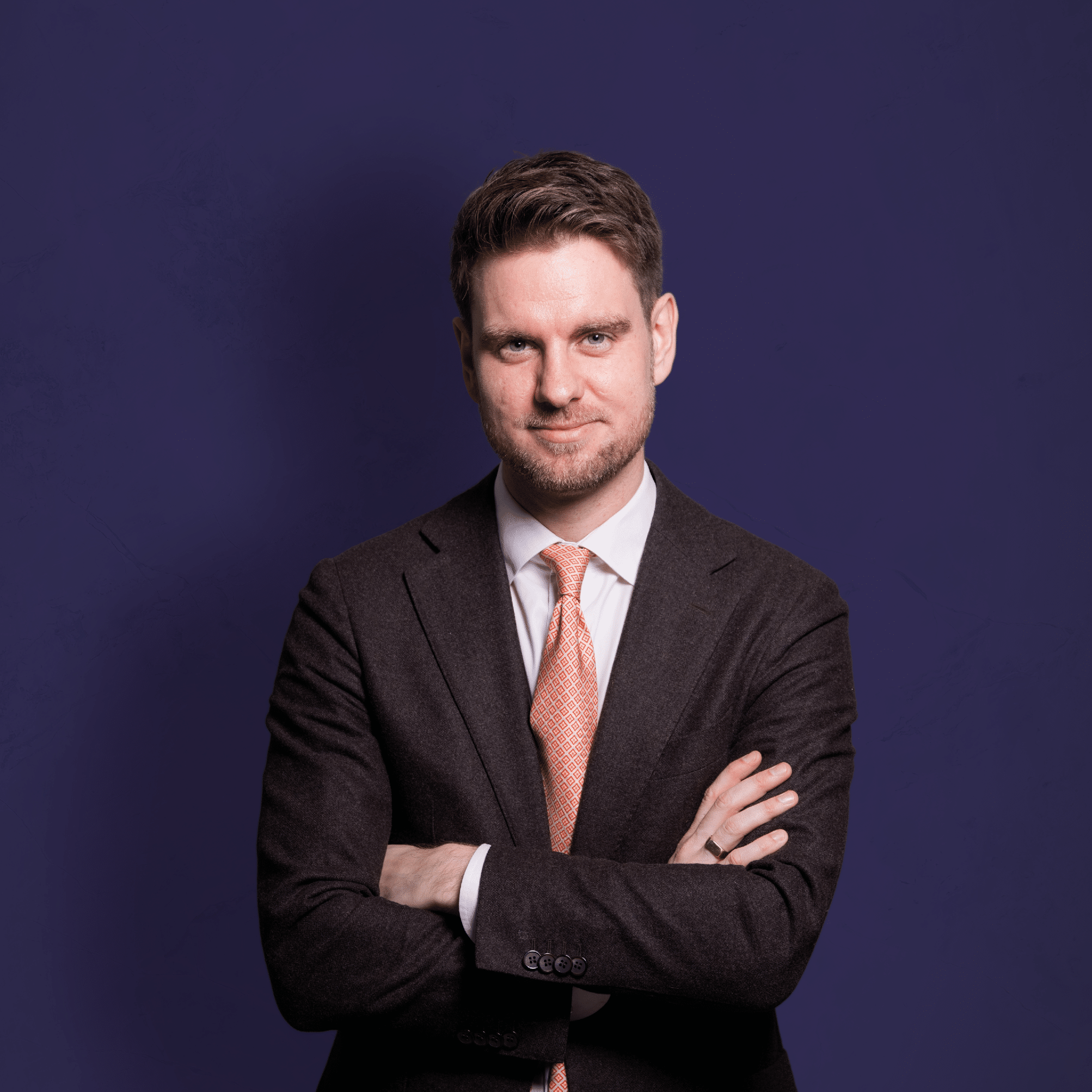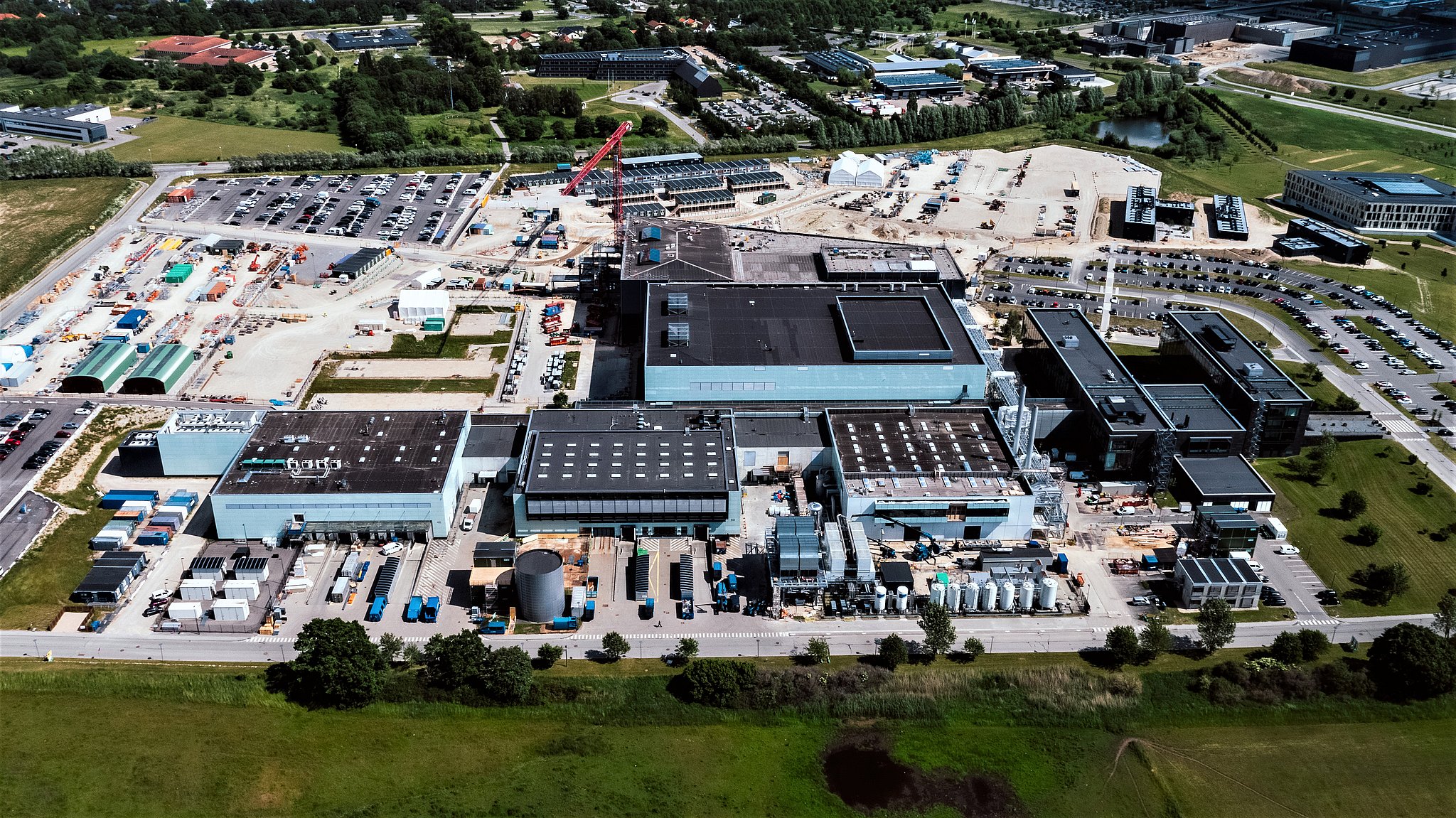
Client Case
How to create a meaningful place to work during extreme growth?
Fujifilm Diosynth Biotechnologies (FDB), a subsidiary of Fujifilm, and a global contract manufacturer in the life sciences sector, is undergoing a multifold transformation. Challenging the norms of the industry, FDB wants to demonstrate that the best way to control their rapid expansion is not by installing rigorous systems, it is by installing trust between humans.

Nicolai E. E. Iversen

Ebba Hansen

Carl Emil Zacho Böye
Situation
Fujifilm Diosynth Biotechnologies (FDB), a global leader in contract manufacturing for the life sciences sector, is undergoing significant transformation. Led by CEO Lars Petersen, FDB aims to redefine industry standards by emphasizing human-centric culture and leadership rather than relying solely on traditional rigorous systems and processes.
Challenge
FDB faces the complex challenge of scaling its operations and revenue significantly while maintaining a meaningful and empowering work culture. The company aims to quintuple its revenue from $1.3 billion to $5 billion by 2030, an ambitious goal that necessitates massive operational and cultural shifts. The primary challenge lies in balancing rapid growth with fostering a workplace environment that prioritizes trust, transparency, and psychological safety, moving away from traditional hierarchical and process-heavy management styles.
Solution
FDB has adopted a revolutionary approach by embedding trust and human sensibility at the core of its operations. The company has eliminated extensive systems and bureaucratic processes, instead promoting a culture where employees are empowered and trusted. This philosophy is encapsulated in their “People Fundamentals,” which guide behavior and interactions within the organization. Leadership development at FDB focuses on emotional intelligence, active listening, and fostering a strong sense of purpose and belonging among employees. This transformation is supported by substantial training programs and events dedicated to cultivating trust and open dialogue among leaders. This shift aims to create a sustainable balance between growth and maintaining a meaningful work environment, ultimately positioning FDB as a trusted partner in the life sciences industry.
TRANSFORMING LIFE SCIENCES BY HUMANIZING CULTURE & LEADERSHIP
Meaning in Madness?
Manufacturing with a Purpose
From DNA sequencing to the final medication product packaged and delivered into the hands of patients, FDB is an end-to-end contract drug manufacturer. From early stage to large-scale production, they support the full lifecycle of biologics development by scaling the manufacturing process. As this year’s Meaningfulness at Work study revealed, both manufacturing (72) and pharmaceuticals (71) are industries facing challenges in meaningfulness at work, scoring below the average (74).
With FDB being an end-to-end manufacturer of pharmaceuticals, they find themselves in a placewhere they need to make an extra effort to create meaningfulness at work among employees. According to President & CEO Lars Petersen, the purpose potential is clear:
“What especially gets me up in the morning is the transformation I believe is so fundamental. I actually do believe that we are a big part of transforming the entire industry where the cost of drugs needs to be lower and where the speed of getting drugs to patients needs to be faster. This requires that we move beyond a contractual, transactional model and instead prove ourselves as a trusted partner to our customers, becoming an integral part of the ecosystem. A partner for life with unprecedented delivery.”
Founded
1923
Yearly Oxygen
USDb 1.3 (2023)
Human beings
4.400
Vision
To be the leading and most trusted global Contract Development and Manufacturing Organization in the biopharmaceutical industry.
SCALING CULTURE
Being A ‘People First’ Company
In the midst of an $8 billion investment plan, FDB is aiming to quadrupling their revenue by 2030 – from 6 large-scale bioreactors to 36. In a world that is renowned for process engineering, tight controlling, and clear chains of command, it would naturally also permeate the governance, organization, and culture of the company. Meticulously cascading targets. Calibrating bonuses with individual performance reviews. Documenting standard decision-making processes. Instead, FDB has made a conscious effort to get rid of all such measures to pave the way for limitless trust, empowerment, and ownership.
“We are trying to keep systems and processes to an efficient minimum to make sure people are the center in everything we do,” Lars Petersen explains.
“Some say that we are building a ‘hippie’ culture. But this is simply about creating a culture of trust, where transparency, being yourself and having psychological safety enables people to speak up at any given moment and be okay with making mistakes as long as we learn from them. Being in a way where people can take ownership, because you know you are trusted and empowered if you do so.”
While production processes and quality assurance as a drug manufacturer is naturally managed with extreme rigor, the underlying assumption is that the human potential of the organization – the people – is best realized by systematically minimizing processes, rules, and bureaucracy.
This philosophy is written into 9 People Fundamentals, which sets the tone and direction for how everyone is expected to show up, interact, and lead. “We lead people – and manage processes”, as one of them reads, continued by “We bring our full selves to work”. The People Fundamentals, however, are not implemented through an extensive roadmap or follow-up system. There are activities and tools, yes, but the primary objective is to create a continuous conversation and mindset around how the right growth can be balanced with the right culture.
Not as opposites, as either-or, but constantly weaving them together to never settle for the ordinary, allowing a touch of madness in pursuing something unprecedented, but without decaying into chaos or anarchy. Always balancing the meaningful and the meaningless.
REIMAGINING LEADERSHIP
Followership above Force
This balancing act requires training. Training in some of the muscles that are often overlooked or under-stimulated in the traditional leadership gym. When the philosophy is about trust, ownership, and empowerment, the mastery required rhymes more with active listening, human sensibility, and emotional intelligence than any other managerial disciplines. To create meaning for people in their work, leadership in itself is the least important driver. In other words, it is not how you as an individual leader perform that creates a meaningful working environment – it is how you as a leader can facilitate a strong sense of purpose, belonging, and personal growth. This, however, breaks with some of the truths many leaders who come to FDB are born and raised to believe in.
“Don’t come in here with the typical mindset of a leader saying, ‘I will deliver in 100 days.’ Forget about delivery. Try to relate to people, try to understand the culture before you even think about delivering anything. And to be honest, eight out of ten of our leaders are going through quite a journey to reconfigure. We even have leaders saying that they had to be broken down completely and rebuilt before they really understood what was going on. We invest that much in our journey, and we are fully aware that this might not be for everyone,” Lars Petersen says.
“We try to deconstruct some of these myths and false truths about leadership to champion a culture where leaders serve not just the business objectives but the human spirit in the organization. This sometimes also entails eradicating inflated egos to foster an environment of true team spirit as opposed to solo climbing the career ladder.”
To manifest this focus, FDB in February brought together more than 100 leaders from across the globe. The full event was dedicated to talking exclusively about strategy, leadership, and culture – not least which habits, norms, or systems the leadership community needs to say goodbye to in order to take the next quantum leap.
“We spent 75% of our time discussing our cultural DNA and how to cultivate trust among our leaders and teams. We asked our leaders upfront to submit all their hopes and concerns to facilitate an open dialogue about what excites us about our growth journey, but also what makes us worried. This is fundamental to build trust,” Petersen shares.
Did the leaders then embrace this focus? Or did they leave thinking it was a complete waste of time? Looking at the impact, the numbers tell a quite convincing story. After the event, FDB were able to track an improvement of 9% in how much the leaders believe in the strategic direction with both their hearts and minds, while improving the level of optimism around FDB’s future by 10% – shortterm as well as long-term. Further, the level of trust in the organization at large increased by 8%. The event itself was rated 9.17 on a 10-point scale – a testament to the appreciation of having time to reflect and connect on how to humanize the culture and leadership.
Nine People Fundamentals at Fujifilm Diosynth Biotechnologies
We foster psychological safety
We bring our full selves to work
We seek attitude when we hire & promote
We assume trust & expect ownership
We value teams over hierarchy
We support individual growth through empowerment
We lead people & manage processes
We lead through purpose & meaning
We lead for the future

